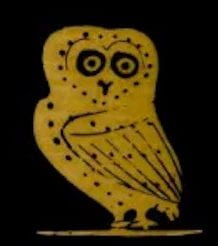Every year, the Journal of the History of Ideas awards the Morris D. Forkosch Prize for the best first book in intellectual history.
The winner of the JHI ‘s 2020 Morris D. Forkosch Prize for the best first book in intellectual history is Hannah Marcus, for Forbidden Knowledge: Medicine, Science, and Censorship in Early Modern Italy (University of Chicago Press).
The judging committee writes:
A work of deep erudition and methodological breadth, Hannah Marcus’s Forbidden Knowledge: Medicine, Science, and Censorship in Early Modern Italy is the winner of the 2020 Morris D. Forkosch Prize for the best first book in intellectual history.
In this elegant monograph, Marcus expertly guides us past the bright line of book burning and banned authors to explore the complex landscape of medical learning in early modern Italy under conditions of ecclesiastical censorship. Deftly navigating the indexes of prohibited books issued from Rome by Paul IV (1559) and Clement VIII (1596); Paul V’s theologian, Giovanni Maria Guanzelli (1607); and Alexander VII (1664), Marcus tells a story of institutional ambition complicated by varying forms of resistance, engagement, and negotiation within Counter-Reformation Italy.
The “paradoxes of censorship” Marcus brings to light in her study are telling and legion. Lists of forbidden books did double duty as author advertisements and guides for library acquisitions. Compilations of offensive passages to be expurgated from books and removed from intellectual circulation inverted the humanist commonplace book in which readers copied out notable passages for reuse. Learning to read like ecclesiastical censors, physicians monitored their own writing and contributed to crowd-sourced expurgations, yet also strategically and successfully sought permission to read prohibited titles. On Marcus’s account, processes of prohibition, both explicit and tacit, created in turn a discursive space in which Catholic physicians articulated why they wanted to read banned books, as well as a set of material practices—slicing out authors’ names, overwriting offensive text, covering expurgated passages with slips of paper—that signal their reading of what was supposed not to be read.
Hannah Marcus is assistant professor of the history of science at Harvard University. Her research focuses on the scientific culture of early modern Europe between 1400 and 1700.
The JHI Blog extends its deepest congratulations to Professor Marcus and looks forward to reading more of her work.



